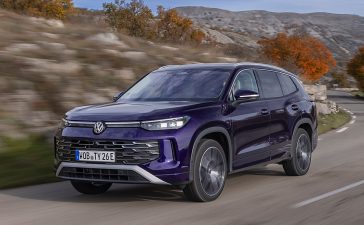Ford said it will maintain its temporary pause on production and shipment of its electric F-150 Lightning through at least the end of next week as it continues to investigate an issue with the truck’s battery. The full investigation, though, could “take a few weeks.”
Ford spokesperson Emma Bergg said in an email:
We are suspending production at the Rouge Electric Vehicle Center through at least the end of next week. During a standard Lightning pre-delivery quality inspection, one vehicle displayed a battery issue. We believe we have identified the root cause of this issue. By the end of next week, we expect to conclude our investigation and apply what we learn to the truck’s battery production process; this could take a few weeks. We will continue holding already-produced vehicles while we work through engineering and process updates.
She added, “We are not aware of any incidents of this issue in the field and do not believe F-150 Lightnings already in customers’ hands are affected by this issue.”
The automaker first said it would pause production of the F-150 Lightning on February 14th, citing a potential battery issue. But it declined to disclose any additional details at the time, citing an ongoing investigation. The halt in production and shipments was first reported Tuesday by Motor Authority.
“We are not aware of any incidents of this issue in the field and do not believe F-150 Lightnings already in customers’ hands are affected by this issue”
Ford CEO Jim Farley has cited quality issues and the large number of recalls issued by his company as among the reasons why he is disappointed in Ford’s financial performance lately.
Battery issues have been cited in several recalls of electric vehicles over the past few years, ranging from software glitches to more serious fire risks. Chevy notably recalled its entire Bolt EV lineup after several fires were reported, resulting in a multi-month production halt.
The F-150 Lightning is the most important EV in Ford’s lineup, and possibly in the entire industry, given its status as the electrified version of America’s best-selling pickup truck. Analysts on Wall Street watch its production and delivery process closely as it is seen as a bellwether for the American car buyers’ appetite for electric vehicles.











